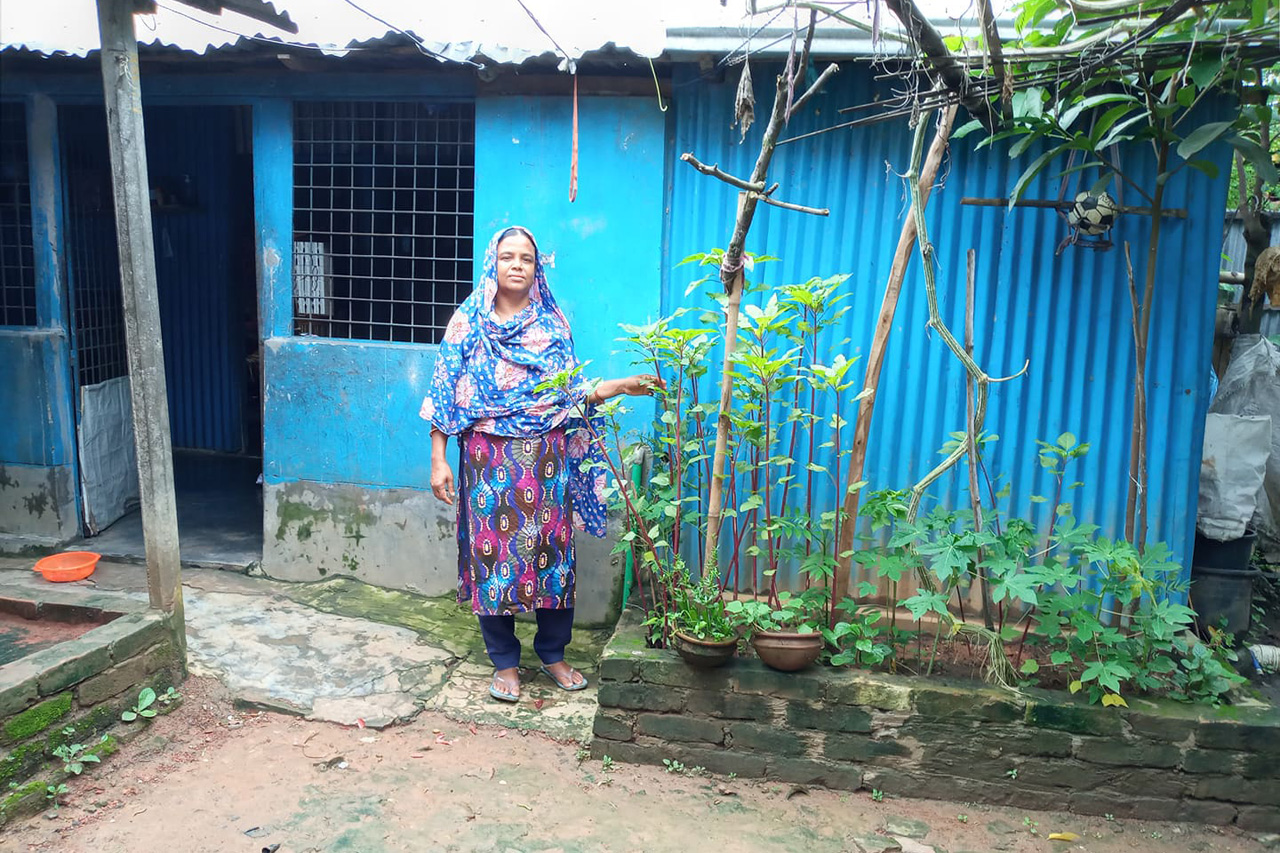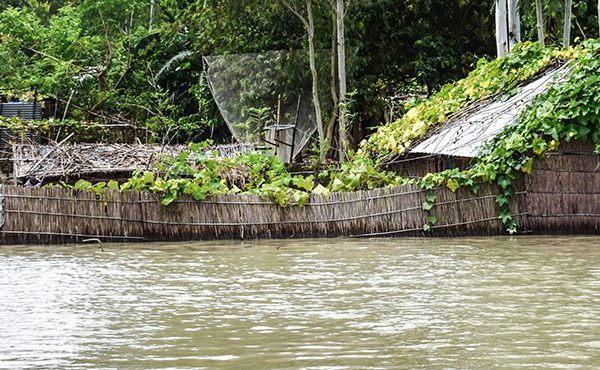Reading Time: 4 minutes
COVID-19 could double the number of people facing acute food insecurity across the world – pushing 130 million more to the brink of starvation. Greener, more edible cities could provide a solution.
36 million people in Bangladesh will be newly pushed into poverty due to COVID-19. Social distancing measures and lockdowns have cut opportunities for work and income, especially in urban areas – leading millions of people to struggle to earn a single meal.
Agricultural production and supply routes are also being disrupted. The demand for fresh food in cities is increasingly acute, where adulterated food was already a common problem. Nearly half of fresh produce consumed daily in Dhaka is adulterated.
Those living in urban poverty find it the hardest to afford fresh, unadulterated food.
The number of people living in Bangladesh’s cities could double by 2030, as people migrate away from rural areas to find employment opportunities. Half a million people migrate to Dhaka each year, and 55% live in informal settlements. A study by ICDDR’b revealed that women living in informal settlements are undernourished, and almost half of children aged two to five years suffer from malnutrition.

35-year-old Duli Akter lives with her husband and daughter in an informal settlement in Adapara of Savar, in the outskirts of Dhaka. She migrated from Daulatpur of Manikganj, central Bangladesh.
Duli is growing a variety of vegetables – malabar spinach, stem amaranth, beans and two kinds of gourd. Her local community development organisation provided her with four packets of seeds in early May.
Duli has no security in terms of land tenure. She lives on land owned by local landlords, where she has some space around her home to grow food.
“The local community organisers gave me the seeds and showed me how to look after them. They helped me understand which vegetables to grow in which season,” said Duli.
“I saw that I could easily grow in the space that I had available. Soon, I was able to add the vegetables in our daily meals.” – Duli Akter, Savar
Read more: World Environment Day 2020: Time to look at how we will recover better
People like Duli who have migrated to cities often have prior experience in farming, but lack the knowledge and support of growing food in an urban context. The draft National Agricultural Extension Policy 2012 has set strengthening urban agriculture a key pillar to increase the efficiency and productivity of agriculture for ensuring food security and business development.
Could urban agriculture be a part of the solution to a food crisis?
Globally, urban croplands make up 5.9% of all cropped areas. In Shanghai, 60% of vegetables consumed within the city are produced within it. In Cuba, over 300,000 urban farms and gardens produce half of the country’s fresh produce supply.
Approximately 12% of Dhaka’s urban residents currently practice urban farming.
Urban dwellers grow horticultural crops at homesteads and on rooftops, balconies, vacant plots, road strips, and railway side spaces. They use both traditional and improved technologies for the crop production, and food is primarily grown for household consumption.
Dhaka has roughly 10 square kilometres of bright rooftops, which could be used for local food production.
Rooftop gardening has the potential to address vegetable and small livestock needs for urban dwellers. Household farming of items such as beans, eggplant, green pepper, pumpkin and bottle gourd are easy to grow in pots, rooftop, and through hydroponics.
52-year-old Soria Begum grew enough pumpkin and beans for herself, her neighbours and for a profit – all from an abandoned little space beside her home. Soria used to work as a housemaid. She lives alone, having been widowed a long time ago. She has five children who do not provide any support. She would not eat on days she did not find work.
She planted the seeds in October 2019 in an empty space next to her home in Chattogram of southeastern Bangladesh. She took care of the seedbeds, saplings and vines, watered them and removed the weeds, following the advice from her community organisers. Her harvest was enough for herself, to donate to members in her community, and surplus to sell.
Read more: The green envoy: A step towards an environmentally-friendly BRAC
Community farming of poultry, aquaculture and dairy can provide essential nutrition for particularly low-income communities, especially during crises.
Those living in urban poverty are willing and keen to take up urban agriculture, but face a number of existing challenges.
- There is a lack of knowledge about urban gardening techniques, compost and fertiliser application, and controlling pests and diseases – especially in an urban context.
- Most live in insecure settlements with no land tenure, and face the challenges of urban drought, flooding and waterlogging.
- There is a lack of technical support, including the necessary input and provision of quality seeds by the government and/or NGOs. Those living in urban poverty also have no access to unused fallow land owned by the government for group agriculture.
Urban agriculture could be a solution to multifaceted urban crises – helping to contribute to seven of the sustainable development goals. Urban agriculture should be prioritised in policy and practice – within communities, households and individuals, in order to achieve sustainable urban development.
A positive policy was implemented in Dhaka in 2016. The mayor of Dhaka South City Corporation, with a vision of a greener city, proposed that homeowners under the area will enjoy a 10% tax rebate if their rooftop, balcony or compound are used for gardening.
Bangladesh requires more policies which encourage the growth of urban agriculture. An explicit Urban Agriculture Policy, along with a City Adaptation Programme of Action should be formulated.
In 2019, BRAC’s urban development programme adopted urban agriculture as part of livelihood support for low-income communities across 20 cities. More than 35,000 households living in urban settlements received nearly 20,000 packets of seeds and seedlings. They were also supported by community organisers to equip them with the technical knowledge to grow the food.
Md Abdullah Al Zobair is manager of knowledge management, innovation and communication at BRAC Urban Development Programme. Zaian F Chowdhury and is a communications specialist of BRAC Communications.





